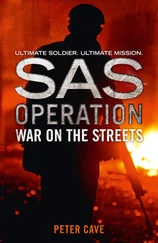“Kapitan, I—”
“I, I, I,” Litvanov, mocked him. “Are you deaf as well as dumb?”
Karpenko recoiled under the assault in full ear of the crew at stations in the CCP.
A sudden, shocking silence gripped the boat.
Litvanov, his coarse features twisted into a mask of anger, looked around at his officers and crew. At Zakayev and the girl, both tucked into an unused corner of the red-lit CCP, out of the narrow traffic lanes used by the crew.
“The dive took fifty-two seconds. Why? I’ll tell you why. Because you, Karpenko, ordered both engines half speed ahead instead of full speed ahead.”
Karpenko croaked, “Sir, I can explain—”
“Silence!”
The sound of water dripping into the bilges echoed throughout the CCP.
Litvanov lit a cigarette with a sputtering match. After taking a few drags he said to his starpom, or executive officer, Kapitan-Leitenant Konstintin Veroshilov on duty at the diving station, “You will remove Karpenko from the watch bill until he can figure out how to dive this scow in thirty seconds.”
Veroshilov braced. “Yes, Kapitan.”
Litvanov’s gaze returned to Karpenko. “Dismissed!”
Zakayev went below into the K-363’s innards, which stank of unwashed bodies and unflushed heads. He entered the wardroom where Litvanov was hunched over a bowl of lentil soup, a plate of herring and groats, and a bottle of vodka.
“May I join you, Kapitan?”
Litvanov, shoveling food into his mouth, washing it down with vodka, ordered the messman out of the wardroom. Zakayev took a seat on the leather upholstered banquette opposite Litvanov.
At length Litvanov, not looking up from his food at Zakayev, said, “I know what you are thinking.”
He sent the vodka bottle careening across the table. Zakayev made a one-handed grab before it reached the edge. He uncorked it and filled a glass but didn’t drink.
“The success of this operation hinges on how well the crew performs their duties,” Litvanov went on. “We can’t afford to make mistakes. Karpenko made a mistake and he has to pay a price. Being humiliated in front of your subordinates helps focus the mind. Our lives and the success of the mission depend on every man doing his job perfectly.”
Zakayev knew that Litvanov was proud and dedicated and had a bedrock belief that adversity tempered a man’s character. Even so, he said, “Your men are volunteers, not conscripts.”
“What of it?”
“They seem on edge. Perhaps you drive them too hard.”
Litvanov pushed his plate and cutlery aside. He lit a cigarette. “On the contrary, my regimen will work wonders. Like you, General, I put a high premium on dedication and sacrifice. You won’t be disappointed. The mission will be successful. I guarantee it.”
Zakayev believed him. He had been introduced to the K-363’s skeleton crew but didn’t introduce the girl, in whom the men had shown only mild curiosity when she came aboard. “Because she’s one of us, the old sailors’ myth that a woman aboard a ship brings bad luck means nothing to them,” Litvanov had quipped.
The K-363’s sailors, some barely out of their teens and with sparse beards, cropped hair, and eager looks, reminded Zakayev of the young men he’d commanded in Chechnya. Too embittered to believe their cause could fail, the sailors had reaffirmed their desire to sacrifice themselves to avenge their families and to destroy the hated Russians. They all drank a toast, after which they saluted Zakayev, nodded politely to the girl, and returned to their duties.
Earlier, Zakayev and the girl had boarded the K-363 where she lay in a deep fjord at the Russian Northern Fleet Submarine Base Olenya Bay, moored to a rotting pier. The fjord, surrounded by low hills covered with scrub and birch, opened onto a dredged channel that emptied into the Barents Sea. At the head of the fjord, not far from the K-363’s berth and lined up like sardines in a tin, twenty rusting obsolete nuclear submarines waited their turn in the breakers’ yard. Zakayev, standing in the dark on the K-363’s rounded, snow-covered hull and looking toward the far shore, could barely identify the bow of an old flooded diesel submarine jutting above the fjord’s oil-coated water at a forty-five-degree angle, not even a buoy to mark its grave.
Starpom Veroshilov had horsed out of an open hatch and looked around, trying to see what the weather promised. “Clearing,” he said mostly to himself, looking up at the night sky where, through holes ripped in the pale cloud cover, stars twinkled. “Dropping temperatures. Moderate seas.”
Litvanov appeared on deck. “Starpom, sound quarters for getting under way. We stand out on the flood tide.”
“Aye, Kapitan.”
“What was your final muster?”
Veroshilov recited from memory. “The twenty-three men you selected are aboard. The rest—ten officers, eight warrant officers, three petty officers, ten able seamen—are ashore on liberty and will be left behind.”
“Very well.”
Veroshilov, after delivering this report, had gone forward to the brow, where he knelt and disconnected a thin, black drooping cable hanging between the pier and the K-363. The cable provided intermittent phone service to submarine headquarters at the sprawling Olenya Bay Naval Base complex. The phone rarely ever rang, and Litvanov liked it that way.
Litvanov had glanced at the Russian tricolor—white, blue, and red—snapping from a staff planted on the sail, then turned to Zakayev and said, “So, now it starts.”
Shortly, Litvanov maneuvered the K-363 away from the pier and stood down the Tuloma River under cover of darkness. He had invited Zakayev to the bridge high in the submarine’s streamlined sail and, like a guide on a sightseeing cruise gliding silently down the river, pointed out the sights: darkened, abandoned warships anchored in the roadstead; two rusting and mottled radioactive waste transport ships, the Amur and the Vala; the defunct Letinskiy lighthouse at the point where the Tuloma River emptied into Kola Bay, and where balls of sleet peppered the K-363.
“So much for the weather report,” Litvanov had said and sounded the diving siren.
Now Litvanov stood at the chart table in the CCP, laying off ranges and bearings. He studied the chart, working his jaw from side to side as if reciting a silent incantation known only to him. He said to Starpom Veroshilov, who was also the ship’s navigator, “Hold this course until we pass the channel marker buoy in another”—he looked at the chronometer mounted over the chart table—“twenty minutes. Then come to course three-five-zero.” “Aye, sir,” said Veroshilov, marking their course line, which, laid out, was six nautical miles due west of Kil’din Island off the Kola Peninsula.
Submerged, rigged for silent operation, the K-363 crept northeast at five knots. Tension had risen steadily until it showed on the burnished faces of the sailors on duty in the CCP exchanging nervous glances. They knew that the K-363’s submerged transit of Kola Bay was a gross violation of Northern Fleet regulations and that they ran the risk of being attacked by Russian patrol boats on the lookout for intruding foreign submarines.
Litvanov tapped the chart and said, “No sign of any patrol boats. Good thing too: Those idiots might panic if they hear us and start dropping depth charges.” He glanced at the girl, dressed in a pair of baggy gray regulation submarine coveralls that hid her slim figure, to gauge her reaction. She calmly held his gaze with her big, expressive eyes and said nothing.
“Where do you think they are?” Zakayev said.
Litvanov shrugged. “Maybe they heard a whale, thought it was a sub, went chasing after it, and are miles away. Or maybe they decided to hang around to catch some poor fisherman with his nets over the side in a prohibited area. You never know.”
Читать дальше












